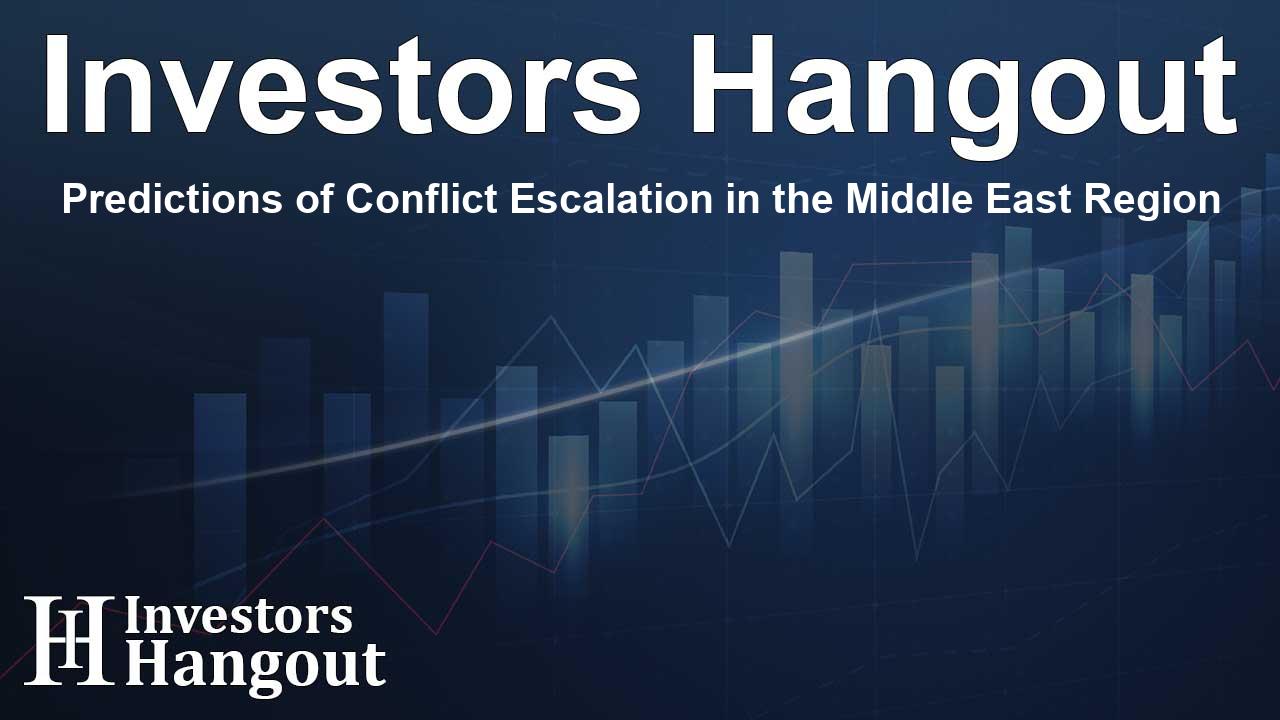Predictions of Conflict Escalation in the Middle East Region

Understanding the Escalation of Tensions in the Middle East
Recent assessments indicate a significant likelihood of heightened conflict in the Middle East over the next months. Analysts project a 60% probability of escalation, an unsettling prospect that reflects the region’s turbulent geopolitical landscape.
The Dynamics Behind the Geopolitical Tension
The conflict dynamics are largely driven by the growing animosity between Israel and Iran. This was exemplified by Tehran's missile assaults on Israel, an event that starkly illustrated the deteriorating relations. Analysts indicate that such maneuvers by Iran are not merely defensive but reflect a shift toward a more aggressive stance.
Retaliation and Internal Pressures
The missile strikes were justified by Iran as retaliation against the death of its influential allies. However, these actions may also stem from domestic pressures that the Iranian regime is facing. In an effort to stabilize its power, Iran is resorting to military actions abroad, highlighting the complex interplay between internal and external politics.
Israel's Perception of Threats
On the flip side, Israel continues to view its regional adversaries as existential threats. The advancements made by militant groups such as Hezbollah and Hamas only intensify Israel’s determination to maintain its security. Thus, the situation is characterized by a zero-sum game, leaving little room for negotiations or de-escalation.
Potential Scenarios for Escalation
According to various analyses, major escalations may take different forms, which include conflicts involving Iranian proxies located in Lebanon, with potential spillovers into Syria and Iraq. Such scenarios portend a greater regional instability that could have lasting repercussions.
Direct Confrontation with Iran
The scenario where Israel engages in a direct confrontation with Iran stands as the most concerning. It poses a risk of escalating tensions into an extensive conflict that could destabilize the entire Persian Gulf region and drastically impact global economic conditions, particularly in oil markets.
Retaliation on Nuclear Facilities
One of the dire possibilities includes Israel conducting retaliatory strikes against key Iranian assets, such as nuclear facilities. This could instigate a wider regional conflict, increasing the stakes and potentially involving larger global powers such as the United States.
Global Economic Implications
The unfolding events in the region have begun to influence market conditions significantly, evidenced by a noticeable spike in oil prices. With tensions escalating, analysts warn that if conflict intensifies, we could witness a dramatic upsurge in oil prices, severely affecting the global market.
Strategies for Investors
In light of these uncertainties, experts recommend that investors consider diversifying their portfolios with oil-related assets outside the Middle East. Such assets may provide a buffer against rising prices due to their geographical separation from the conflict.
Nuclear Developments and Political Changes
The potential acceleration of Iran's nuclear program is another wild card that could dramatically alter the regional security landscape. Moreover, the outcomes of future elections, particularly in the U.S., could shift the strategic calculations of all parties involved, adding layers of complexity to an already intricate situation.
Frequently Asked Questions
What is the probability of escalation in the Middle East?
Analysts predict a 60% chance of escalation over the next months, driven by various geopolitical factors.
How does domestic pressure influence Iran's actions?
Iran's internal crises may compel its regime to adopt a more aggressive stance abroad, using military action as a means to consolidate power.
What could be the consequences of a direct conflict between Israel and Iran?
A direct conflict could disrupt the Persian Gulf, causing significant economic ramifications, particularly in oil markets.
How should investors respond to these geopolitical tensions?
Investors are encouraged to hedge their portfolios with oil-related assets located outside the Middle East, thus mitigating risks associated with rising prices.
What role could U.S. politics play in the regional conflict?
The outcome of upcoming U.S. elections could influence the Middle Eastern geopolitical landscape, altering how parties engage with one another.
About The Author
Contact Olivia Taylor privately here. Or send an email with ATTN: Olivia Taylor as the subject to contact@investorshangout.com.
About Investors Hangout
Investors Hangout is a leading online stock forum for financial discussion and learning, offering a wide range of free tools and resources. It draws in traders of all levels, who exchange market knowledge, investigate trading tactics, and keep an eye on industry developments in real time. Featuring financial articles, stock message boards, quotes, charts, company profiles, and live news updates. Through cooperative learning and a wealth of informational resources, it helps users from novices creating their first portfolios to experts honing their techniques. Join Investors Hangout today: https://investorshangout.com/
The content of this article is based on factual, publicly available information and does not represent legal, financial, or investment advice. Investors Hangout does not offer financial advice, and the author is not a licensed financial advisor. Consult a qualified advisor before making any financial or investment decisions based on this article. This article should not be considered advice to purchase, sell, or hold any securities or other investments. If any of the material provided here is inaccurate, please contact us for corrections.
